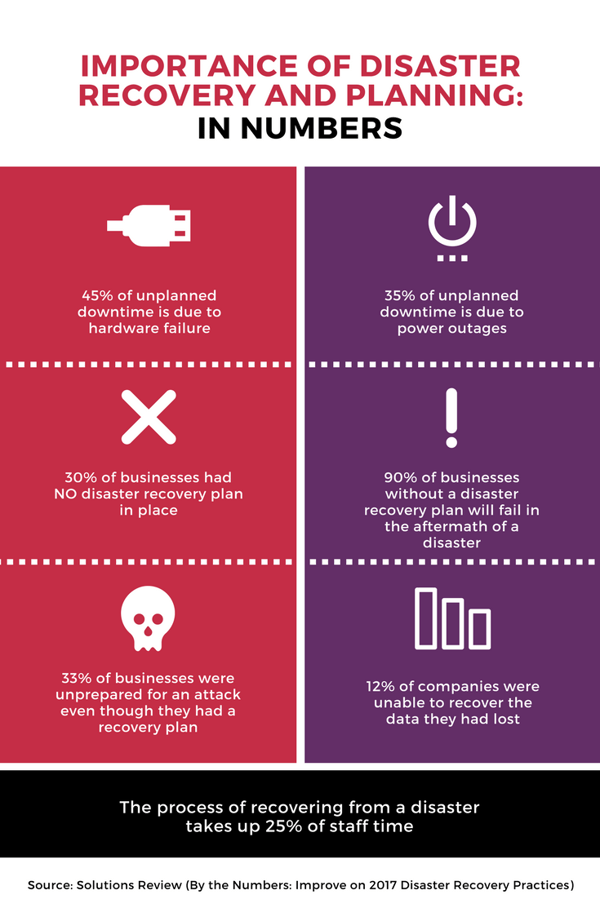
Prevention is better than cure. Much like you, your business needs to be in tip-top shape in order to be ready for any unforeseen circumstances that may disrupt your day-to-day business operations and functions. Regardless of industry, business continuity is an undeniable necessity, especially in today’s fast-paced world. From data security breaches to damage to infrastructure, are you confident that your business is well-equipped to deal with a little bit of downtime?
If you answered no, read on.
If you answered yes, think again.
READ MORE: Where Is Managed IT Headed?
Unpredictability and change are the constants of life. Tropical storms, earthquakes, power outages, and data breaches could all cause damage to your infrastructure – which results into downtime – which results into loss of trust – which results into loss of customers for your business. Our aim is to not scare you – we just want you to be ready in the current world that we live in. This fast-paced world not only brought such incredible technology but also brought terrifying problems that businesses might, in one way or another, encounter.
In a world where data is king, it’s important for businesses to protect their data 24/7/365. Fortunately, there's IT consulting and - most importantly - Disaster Recovery Planning.
What is Backup and Disaster Recovery and Planning?
Disaster recovery is simply a plan developed by your IT department or an outsourced IT consulting firm that allows a company to access their data in the event of a disaster that might destroy a part or all of your business’ resources. Think of a cloud-based disaster recovery strategy as insurance that you don’t usually use but you most definitely need. The main function of a disaster recovery plan is to quickly restore your systems, mitigate risk, minimize downtime, speed-up recovery, and secure and protect sensitive data.
Now you might think that having all the most advanced equipment and keeping them in superior quality could already make you safe from unforeseen risks. Most of the time, yes – taking care of your equipment is, in a way, preventing any type of unforeseen risks. However, what if for some unknown reason, your equipment gets flooded? Or your cyber security measures were breached? Unconvinced? Check out the numbers from Solutions Review below:
Why do I need a disaster recovery strategy?
Simple – business continuity. Regardless of business size, your business could not afford even an hour of downtime. Whether you’re a business, a public organization, or a charity, you need to know how you can keep going under any circumstances. Disaster recovery plans help your company identify potential threats, develop initial responses, and implement a measurable contingency plan that is tailored to the needs of your company.
Business continuity, disaster recovery planning - where do I start?
Developing, implementing, and maintaining a disaster recovery plan is an important but tedious process. However time-consuming it is, it is a necessity to make sure that your business is secure and ready for any unforeseen event. If you would like to protect your company and your data from any type of disaster, talk to your IT service provider about the best plans to protect your business. You can also check out ETech 7’s website about disaster recovery planning HERE.
ETech 7 is a leading managed IT consulting firm and IT services provider based in New York City. Check out our website and avail of our limited-time FREE CONSULTATION promo by clicking the link!
Until next time. :)













